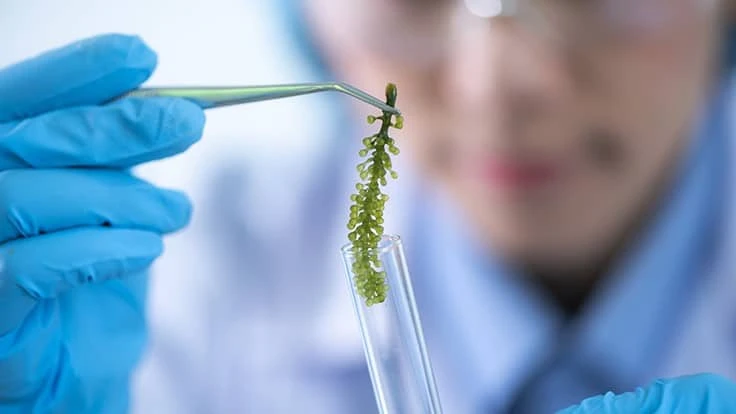
Adobe Stock | © chokniti
The U.S. Dept. of Energy (DOE) has announced nearly $34 million in funding for 11 projects that will support high-impact research and development to improve and produce biofuels, biopower and bioproducts.
These biomass resources, otherwise known as feedstocks, can be produced by municipal solid waste (MSW) streams and algae and converted into low-carbon fuels that can significantly contribute to the decarbonization of transportation sectors that face barriers to electrification, like aviation and marine.
By lowering the carbon footprint of the transportation sector, the DOE says biofuels will play an important role in reaching the Biden-Harris Administration’s goal of achieving net-zero emissions by 2050.
“From food waste to yard trimmings, biomass technology is converting our everyday trash into low-carbon fuel for planes and ships while cutting costs and supporting our critical transportation sector,” said Secretary of Energy Jennifer Granholm in a release. “The companies and universities leading these projects will ensure that our cutting-edge biofuel technologies reduce carbon emissions, create new jobs up and down the supply chain, and are made in America by American workers.”
Transportation accounts for approximately 30 percent of total U.S. energy consumption and generates the largest share of the country’s greenhouse gas emissions. According to the DEO, biofuels serve as a low-carbon alternative to petroleum and can also be used in the production of carbon-heavy products like plastics, fertilizers, lubricants and industrial chemicals.
Selected projects will both research and develop waste for energy conversion, as well as improve algae farming practices to increase production.
Awardees across five projects will expand understanding of the potential for municipal solid waste (which typically consists of a complex mixture of food waste, glass, metals, yard trimmings, woody waste materials, non-recyclable paper and plastic, construction and demolition waste, rags, and sludge from wastewater treatment) to become biofuel energy. The process of converting waste into biofuel has significant potential to divert large volumes of garbage from the landfills to the refinery.
Meanwhile, awardees across six projects will look into diverse strains and farming practices of algae and explore new ways to improve their growth. Algae uses sunlight and nutrients to grow, and then can be converted to a variety of biofuels and products.
“Converting waste into resources relies on continued scientific advancement and innovation to overcome the technological and economic limitations that stand in the way of lasting change,” said Dr. Bryan Staley, President & CEO of the Environmental Research & Education Foundation. “Through these projects, DOE’s significant commitment to waste conversion will move the needle substantially.”
For a full list of funding recipients, visit here.
Latest from Construction & Demolition Recycling
- Pacific Steel selects Danieli as EAF equipment supplier
- Viably, Turmec partner on Ohio installation
- EPA plans to revisit numerous environmental, climate regulations
- Fornnax wins Green Innovation of the Year award
- ABC: Construction backlog inches lower, staffing levels expected to grow
- Former detention center in Cleveland set for demolition
- Ferrous market upward price momentum continues into March
- Build Reuse joins up for Circularity event





